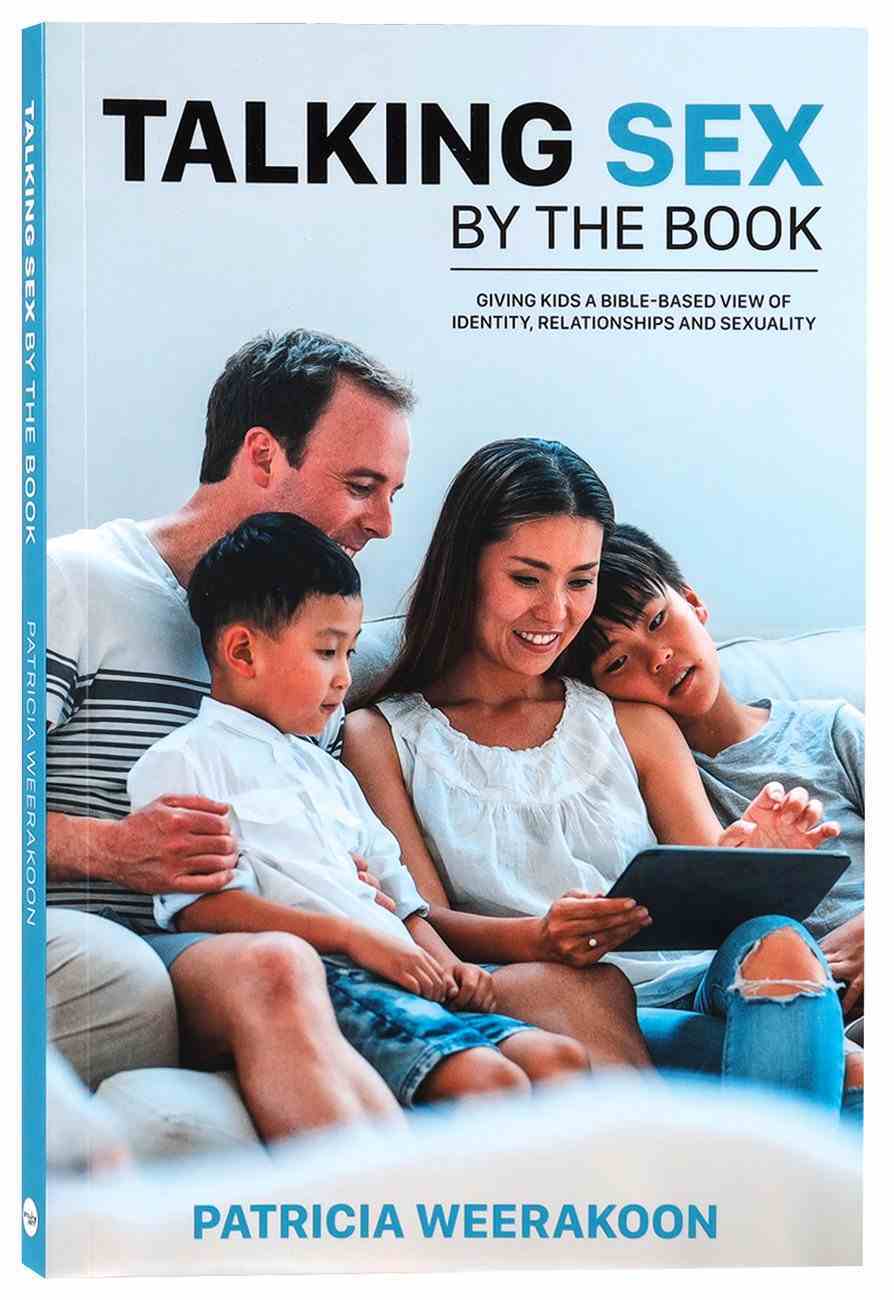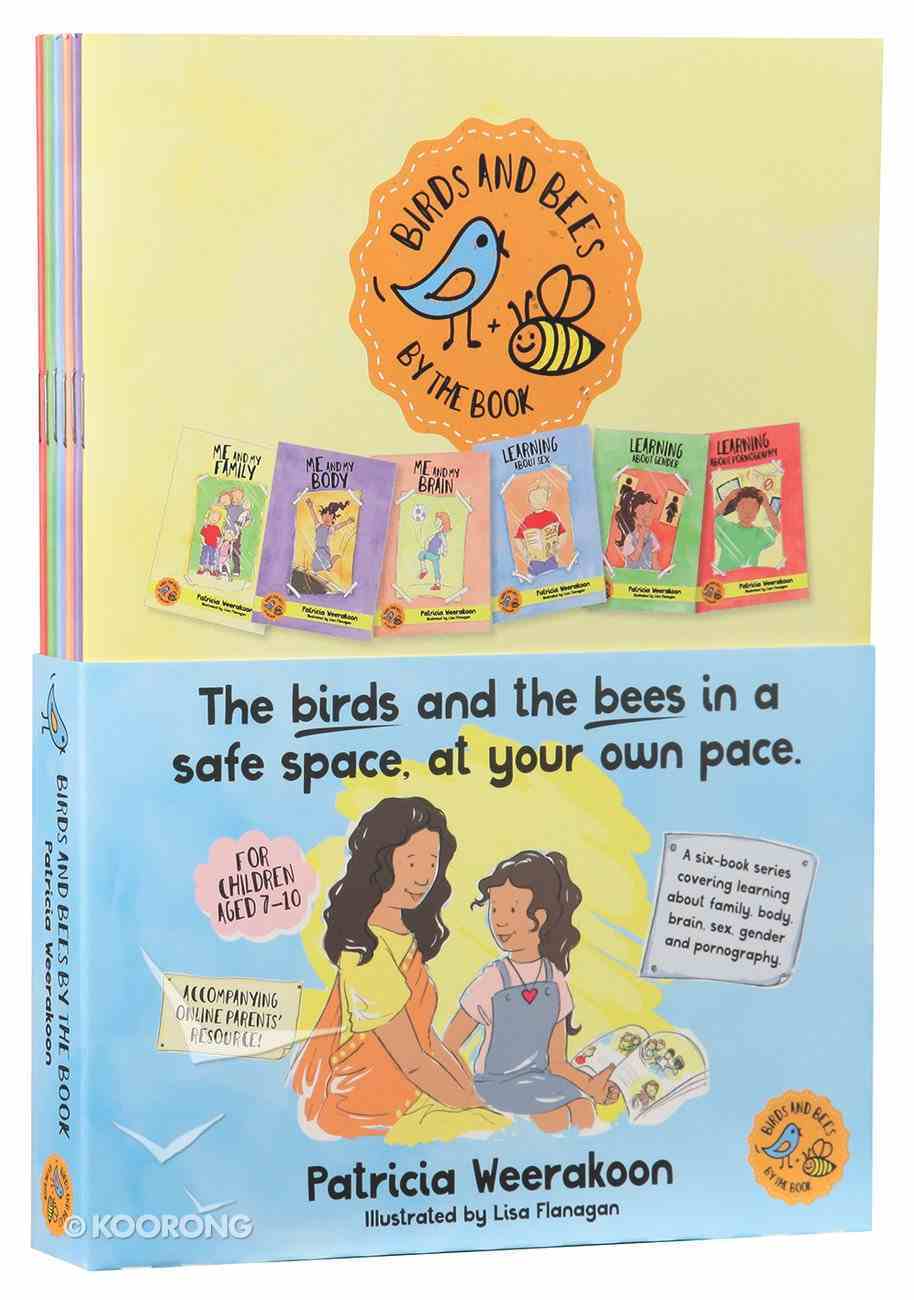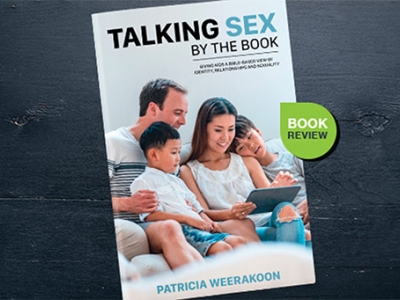
When and how should we start having ‘the talk’ with our kids?
Answers from Patricia Weerakoon’s new shortlisted book 'Talking Sex by the Book'.
Patricia Weerakoon’s latest book, Talking Sex by the Book, has been shortlisted for the 2021 Australian Christian Book of the Year Award. And with good reason! This book provides parents and carers with everything they need to know to confidently talk to their children about the important topic of sex. After laying down some foundational principles, Talking Sex by the Book addresses the major topics of the body, gender, pornography, sex and relationships. For each topic, Patricia Weerakoon provides parents and carers with factual information and practical suggestions tailored to each age group from under 5s through to teenagers and beyond. The following is an edited excerpt, which answers some of the most commonly asked questions.
Under 5 years
Children at this age are dependent on you. And they have a natural curiosity about their own body and those of others. What they first learn about sex, sexuality and relationships is not from the chatter of peers, social media or what is taught at school—it comes from the family. If you can speak on this subject with comfort and matter-of-fact acceptance, this will lay the foundations for a healthy future.
Watch for teachable moments (bath time, a pregnant relative or animal, advertisements). Keep the conversations short. Talk early and talk often. Let your child know they can talk to you about anything, and that nothing they do or say will make you love them less. Be both proactive (you start the conversation) as well as reactive (respond to a question the child asks).
Your children need to hear God’s definition of marriage from you—one man and one woman giving all of themselves to each other for their whole lives (Matthew 19:4–6). Talk and show them how a married couple shares everything. They share their hearts, their name, their home—even their bodies.
Discuss different parts of the body, and how God makes special parts of the body to do particular things. Talk about the genitals and what they are made for. This may be a good time to discuss the concept of ‘public’ and ‘private’ and also safe and unsafe touch.
At this age, it is best to give your child a basic understanding of sex and reproduction. If you avoid the subject, they may get incorrect information from a friend and be too frightened to tell you. Be honest and simple in your explanation, for example, ‘Mummy and daddy get together and daddy puts a sperm in mummy’s womb’.
At this age, time spent with your child, the tone with which you talk about sex, and your behaviour is more important than anything you ‘teach’.
For more detailed information and advice regarding this age group, consult Talking Sex by the Book by Patricia Weerakoon.
5 to 10 years
Children at this age are on the cusp of adolescence. They are starting school and will meet children and teachers from different backgrounds and value systems. They will hear about sex relationships in class and in the playground.
The body changes of puberty may be taking place in some and not in others. The accompanying awakening of feelings, including sexual feelings, can make children at this age restless and inquisitive; sometimes they might even feel anxious or afraid.
You cannot ‘protect’ your child from peer information and pressure. It’s important to that you be prepared with information so that you can prevent or minimise misinformation and fear in your children’s experience.
Proactive sex education can be initiated by asking a trigger question like ‘What do you know about … ?’ or opening up a conversation about issues as they come up on television, in the news or among friends and family. Additionally, be prepared for curly questions and ready with the ‘reactive’ responses.
Read the creation story of marriage (Genesis 1–2) and then talk about how Jesus confirmed this (Matthew 19). Use examples from real life, for example, ‘Do you know what makes the love between mummy and daddy special?’ Explain about sexual activity between a man and a woman in simple terms, as something beautiful that God has created for the purpose of two people in marriage binding themselves to each other, to make babies and have fun together.
Children this age need to be able to identify and name their genitals, and understand ‘public’ and ‘private’ parts of the body and safe and unsafe touch.
While it is important to maintain a high level of affection and affirmation for children in this age group, you will also need to start moving towards advising and setting your parental boundaries of authority and accountability.
For more detailed information and advice regarding this age group, consult Talking Sex by the Book by Patricia Weerakoon. Patricia has also written a series of books for children aged 7–10 to read with their parents called Birds and Bees by the Book (CEP, 2017).
10 to 14 years: tweenagers
This is an age of change in which the body sprouts in interesting and challenging ways. Messages about body image from peers and social media are confronting for a child in the growth phase of early puberty. It is normal for children in this age group to have a growing need for privacy.
In this age group, the emotional, feeling brain is an erupting volcano with slow-developing cognitive control. Importantly, it is also a time when the brain is being wired for a lifetime of values and behaviour through the input it receives.
These years are crucial in setting the foundation for teenage and beyond. Now is when your preteen particularly needs your presence in their life in connecting with them and loving them, affirming an identity for them that is away from the comparison culture they are steeped in, while teaching and guiding their path with grace and authority. In this context, sex education is about more than ‘just sex’: it’s about your words and actions pointing your preteen to God’s plan, showing them why it’s the best way to live.
Be prepared to deal with mood changes and impulsive emotion-driven decisions at this age—the feelings, fears and acting out that accompany emerging sexuality. This is also a time of further exploration of the cyberworld and social media, so be ready to be a media mentor. Your preteen will likely display the early signs of differentiation from the nuclear family—be aware of the ‘tribe’ or peer group they move with, both face to face and online.
Children this age are ready for foundational information on the body, sex and gender, from the perspectives of science, biblical ethics and culture. Don’t talk at your children. Open up a topic and listen. Get them thinking and asking questions about sex and relationships.
Tell them of God’s plan, pattern and place for sexual intimacy in marriage. Like all good things, sex comes with instructions on how to use it best, and warnings as to what could go wrong if it is misused. A particular concern at this age is child-on-child sexual abuse, which comprises an estimated 50 to 65 of all abuse against children.
If you haven’t already, talk about different types of love. Between the ages of 10 and 13, children start having crushes and thinking about sexuality and romance. Biologically, it’s what their bodies are telling them to do. Explain that these feelings for particular people is their brain waking up to romantic love. How they respond is important: encourage them to enjoy the brain buzz without getting too intimate, either physically or online.
For this age group, parents need to lovingly guide while negotiating boundaries of behaviour and setting patterns of accountability.
For more detailed information and advice regarding ‘tweenagers’, consult Talking Sex by the Book by Patricia Weerakoon. Patricia has also written a book for preteens to read called Growing Up by the Book (Growing Faith, 2014).
Over 15 years: teens and beyond
Christian discipleship is pivotal in the teen years. Your teenager’s brain is buzzing with the need for risk-taking, independence and sexual exploration. Your wisdom and guidance are even more important now that at earlier ages. Don’t step back. Take time to connect with your teen and affirm their body as God’s good creation.
Talk, share and show them that God’s plan for their life, including their sex life, will bring joy and fulfilment. Help them set boundaries, learn self-control and be accountable for their feelings and actions. You need to help your teenager process and apply what you’ve taught in the past.
To read more about the unique needs, concerns, challenges and questions that teenagers have, consult Talking Sex by the Book by Patricia Weerakoon. Patricia has also written a book for teenagers to read called Teen Sex by the Book (Youthworks Press, 2012).

Talking Sex by the Book
Every parent faces the need to talk to their child about sex at one point or another. With so many complex questions and scenarios confronting today’s children, these conversations are becoming more and more crucial.

Birds and Bees by the Book
People have been talking about the birds and the bees since Adam and Eve walked the earth. Yet the conversation hasn’t become easier! With so many messages about sexuality, gender and identity around them, our children need a safe space to learn about these topics now more than ever.

Growing Up by the Book
Puberty—it’s an exciting time. You’re not a child, but you’re not an adult either. Your body is changing: breasts, curves and periods; deepening voices, broadening shoulders and wet dreams. And hair in some quite strange places!

Teen Sex by the Book
As a teenager, sex surrounds you: it’s not something you need to go looking for. Perhaps you think you know it all ... or maybe that’s just the impression you give your friends
For more articles from Growing Faith, subscribe to our monthly e-newsletter.
To hear about the latest books and resources from Youthworks Media, subscribe here.







